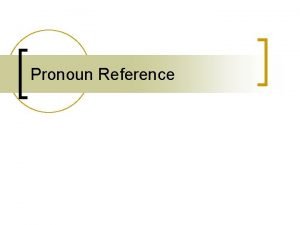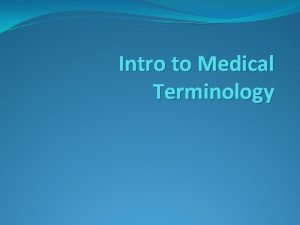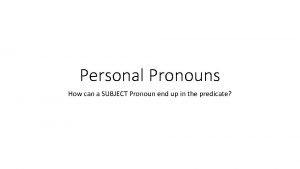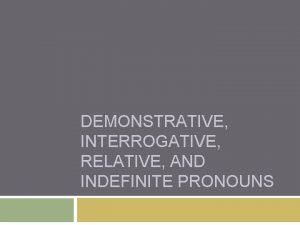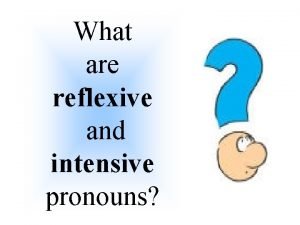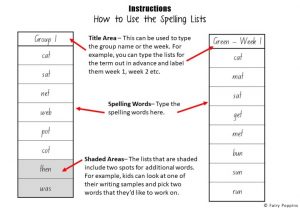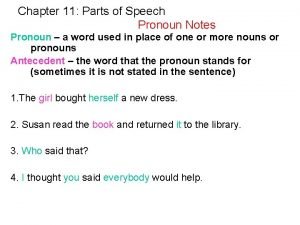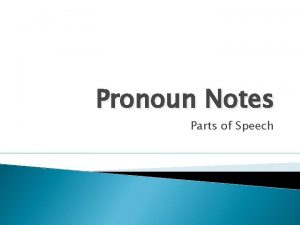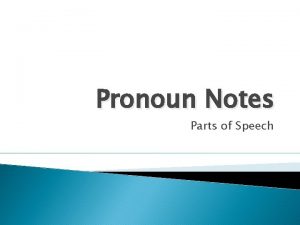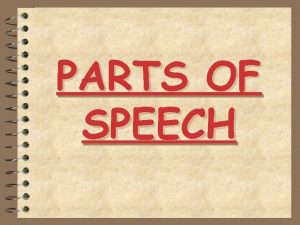PARTS OF SPEECH PRONOUN Pronoun a word used






- Slides: 6

PARTS OF SPEECH PRONOUN Pronoun – a word used in place of one or more nouns or pronouns Antecedent – the word that the pronoun stands for (sometimes it is not stated in the sentence) 1. The girl bought herself a new dress. 2. Susan read the book and returned it to the library. 3. Who said that? 4. I thought you said everybody would help.

Personal Pronouns – refers to the one speaking (first person), the one spoken to (second person), or the one spoken about (third person) First Person – I, me, my, mine, we, us, ours Last fall, I visited my best friend in Maine. Second Person – you, yours Did you say that pen was yours? Third Person – he, him, her, she, his, hers. It, its, they, them , theirs The coach gathered the kids around him and gave them a pep talk.

Reflexive Pronoun – reflects an action back upon the subject; they add necessary information to a sentence. Ralph hurt himself at the park. Sarah wrote herself a note. Intensive Pronouns – emphasize a noun or pronoun but do not add information to a sentence. I myself will write the report. Amelia designed the costumes herself. (both are formed by adding –self or –selves to a personal pronoun)

Demonstrative Pronouns: used to single out one or more persons or things referred to in a sentence THIS THAT THESE THOSE That is a photograph of the space shuttle. These are the names of those who volunteered. **NOTE- When used to modify a noun or pronoun they are adjectives. This card is my favorite. Relative Pronoun – introduces a subordinate clause (a clause that can not stand alone) THAT WHICH WHOM WHOSE The Bactrian camel, which has two humps, is native to Asia. (subordinate clause/can not stand alone) Ray Charles is a performer who has had many hit songs.

Indefinite Pronouns: refers to a noun that may or may not be specifically named Everyone completed the test before the bell rang. Neither of the actors knew what costume the other was planning to wear.

Interrogative Pronouns: introduce a question WHAT WHICH WHOM WHOSE WHO – subject form -used as the subject of the verb (who or what the sentence is about) Who is your favorite quarterback? Who brought the food? (When asking a question the answer is he/she – use who) WHOM – object form -direct object of a verb or object of preposition For whom was the letter intended? (for is prep) By whom was the picture painted? (by is prep) Whom are we waiting for? (When asking a question the answer is him/her - use whom)
